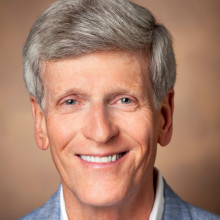Douglas Heimburger
Professor of Medicine in the Vanderbilt Institute for Global Health, Vanderbilt University, USA


Professor of Medicine in the Vanderbilt Institute for Global Health, Vanderbilt University, USA
Dr. Heimburger is Professor of Medicine, Emeritus in the Vanderbilt Institute for Global Health (VIGH) and the Department of Medicine / Division of Epidemiology at Vanderbilt University School of Medicine. As VIGH’s Associate Director for Education and Training from 2009 to 2019, he directed VIGH’s education and training programs for Vanderbilt students and trainees as well as research training opportunities for doctoral and postdoctoral trainees from low- and middle-income countries. These included co-creation and co-direction of the Global Health Track in Vanderbilt’s Master of Public Health Program and the NIH-funded UNZA-Vanderbilt Partnership for HIV-NCD Research (UVP), the Vanderbilt-Zambia Cancer Research Training Program (VZCARE), the Vanderbilt-Emory-Cornell-Duke Consortium for Global Health Fellows (VECDor), the Vanderbilt-Zambia Network for Innovation in Global Health Technologies (VZNIGHT), and the Training Program in Molecular and Genetic Epidemiology of Cancer (MAGEC).
Dr. Heimburger was the principal editor of three editions of the Handbook of Clinical Nutrition and has contributed chapters to multiple editions of the Cecil Textbook of Medicine, Harrison’s Principles of Internal Medicine, Medicine for the Practicing Physician, and Modern Nutrition in Health and Disease. He founded and directed the Intersociety Professional Nutrition Education Consortium and the American Board of Physician Nutrition Specialists. Dr. Heimburger has served on the Advisory Board of the Fogarty International Center (NIH), the governing Council of the American Society for Clinical Nutrition, Initial Review Group Subcommittee G for the National Cancer Institute, the U.S. FDA’s Food Advisory Committee, and a Test Materials Development Committee for the United States Medical Licensing Examination.
Dr. Heimburger's principal research interests are nutritional influences on HIV treatment outcomes, including non-communicable conditions, in African adults, and global health research education and training. He conducted clinical nutrition research in a population of undernourished Zambians starting antiretroviral therapy for HIV/AIDS, initiated during a Fulbright Scholar Award-supported sabbatical in Zambia in 2006.